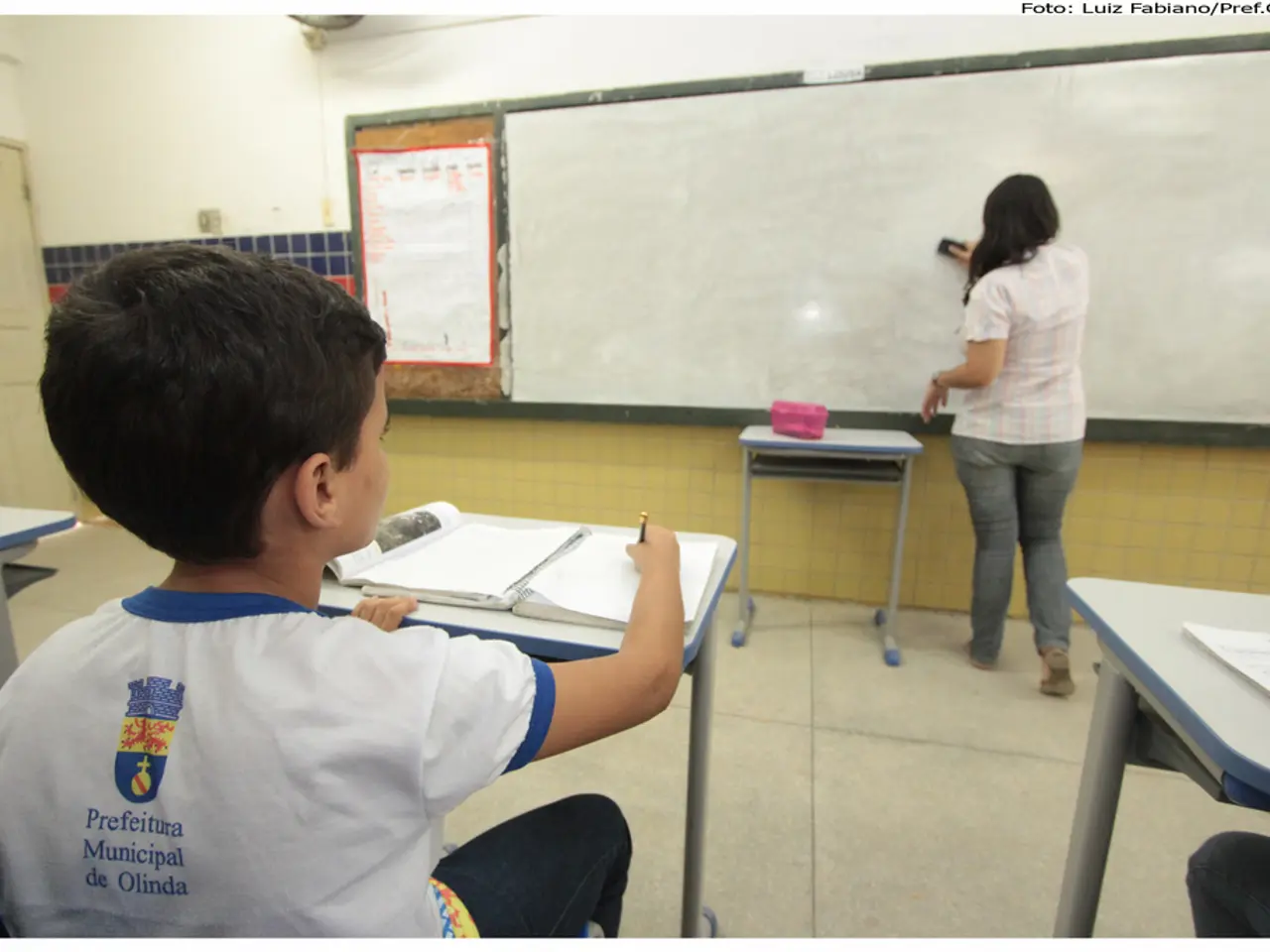Elementary School Chemistry Lessons
For primary school teachers seeking engaging chemistry lessons without the need for lab equipment, several simple and entertaining activities offer a hands-on approach to teaching key chemistry concepts using everyday or minimal materials.
Led by Greta Dromgool and the New Zealand Association of Primary Science Educators (NZAPSE), a recent webinar titled "Chemistry in the primary classroom" provided a wealth of ideas for teaching chemistry in the primary classroom. The session, which includes fun demonstrations from Sandy Jackson (NZAPSE), Chris Duggan (House of Science), Ian Milne, and Sterling Cathman (Mr Science), is available as a recorded professional learning session.
One such activity is crystal growing with household items. Using pipe cleaners, string, salt, hot water, and jars, children can create salt crystals shaped like snowflakes by dissolving salt in hot water and allowing it to crystallize overnight. This demonstrates dissolving, saturation, and reversible physical changes, while encouraging observation and questions about factors affecting dissolving and crystal formation.
Paper STEM challenges, such as making a Möbius strip from just paper, tape, and scissors, explore concepts such as molecular structure topology analogies and scientific design processes without any specialized equipment. These activities foster hands-on creativity and introduce the scientific method in a simple, non-chemical context.
Simple physics-related experiments with common materials, like water capillary action in color-changing flowers or density demonstrations using household liquids, tie closely to chemistry principles like molecular interaction and density differences. These experiments require no specialized lab gear and often use materials readily available at home or in class.
Key benefits of these resources include using common items, emphasizing observation and inquiry over complex setups, showcasing foundational concepts like dissolving, crystal growth, density, and scientific investigation strategies, and allowing whole-class or small-group engagement with minimal safety concerns.
The Royal Society of Chemistry offers detailed instructions for the crystal growing process, providing step-by-step guidance along with practical and safety tips. STEAM Powered Family offers no-prep STEM paper challenges focusing on creativity and scientific thinking with very simple materials, while Little Bins for Little Hands lists physics and chemistry experiments emphasizing hands-on learning with minimal preparation and equipment.
If you need further help finding ready-to-use lesson plans or videos for these demos, feel free to ask. The Science Learning Hub offers a collection of resources related to the periodic table of elements, pre-recorded webinars like "Science for juniors" and "Kitchen science," and a slideshow from the "Chemistry in the primary classroom" webinar for additional support.
Registration for the Science Learning Hub is free and can be done with an email address or Google account. Users can make this collection a part of their private collection by clicking on the copy icon. The International Year of the Periodic Table website provides information about global events, and the Royal Society of Chemistry offers primary school-specific resources and investigations.
[1] Royal Society of Chemistry. (n.d.). Growing crystals. Retrieved from https://www.rsc.org/learn-chemistry/primary/resources/growing-crystals
[2] Little Bins for Little Hands. (n.d.). Science experiments for kids. Retrieved from https://littlebinsforlittlehands.com/science-experiments-for-kids/
[3] STEAM Powered Family. (n.d.). STEM challenges for kids. Retrieved from https://www.steampoweredfamily.com/stem-challenges/
Science education and self-development can involve learning about key chemistry concepts through engaging activities, such as crystal growing with household items or paper STEM challenges that explore scientific design processes. These activities promote hands-on creativity and observe factors affecting dissolving, crystal formation, and other chemistry principles in a fun and simple way.




